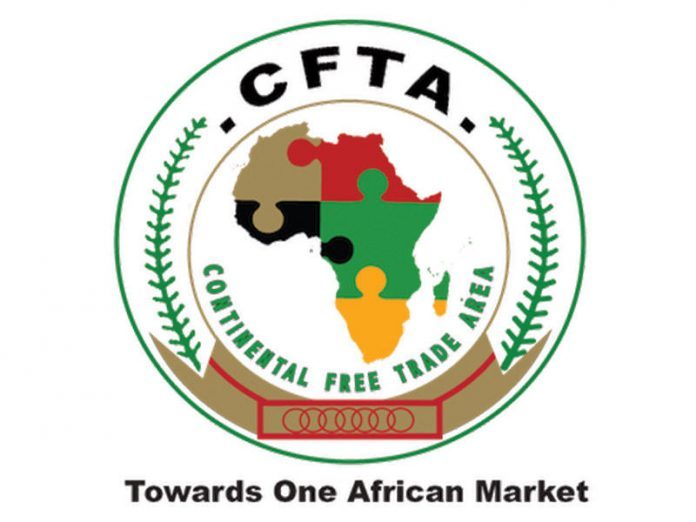Deposit Money Banks (DMBs) in Nigeria and their South African counterparts will enjoy large profits when the African Union (AU) commences implementation of the African Continental Free Trade Area (AfCFTA) agreement, the Managing Director/Chief Executive Officer, Financial Derivatives Company (FDC), Mr. Bismarck Rewane, has predicted.
Mr. Rewane stated this in the FDC’s Lagos Business School (LBS) July “Executive Breakfast Session” presentation obtained by New Telegraph last weekend.
Presidency sources said that Nigeria was expected to sign the deal at the AU summit in Niger last weekend after the nation would have held favourable negotiations with the Union on some aspects of the agreement.
According to Rewane, the deal, which has been signed by 52 out of 55 AU member states (Nigeria will make it 53), will lead to the creation of a single market with 1.2billion people. He stated that intra-Africa trade is currently at $170billion, adding: “Nigeria and South Africa account for 31.8 per cent of regional Gross Domestic Product (GDP)-$2.37trillion.”
While the FDC boss only stated: “Nigerian and South African Banks will make a killing,” when the AU commences implementation of the deal, analysts point out that apart from being the continent’s two biggest economies, Nigerian and South African lenders play a dominant role on the continent.
Although smaller than their South African peers, Nigerian Tier 1 banks such as the United Bank for Africa (UBA), Guaranty Trust Bank , Access Bank, First Bank of Nigeria Ltd and Zenith Bank, are, like their South African counterparts, expanding their operations on the continent.
For instance, UBA, which has operations in 20 African countries , announced that its subsidiaries on the continent contributed about 40 per cent of the Group’s N494billion earnings in 2018.
According to the 2018 financials filed at the Nigerian Stock Exchange (NSE), the bank’s gross earnings grew by 7.0 per cent to N494.0 billion, compared to N461.6 billion recorded in the corresponding period of 2017. The lender’s total assets also grew significantly by 19.7 per cent to an unprecedented N4.9 trillion for the year under review.
Commenting on the result, UBA’s Group Managing Director/CEO, Mr. Kennedy Uzoka, noted that the year 2018 was important for the group, as it gained further market share in many countries of operation.
“Defying the relatively weak economic growth in Africa, earnings were positive and we grew our balance sheet by 20 per cent, driven by the 23 percent growth in our deposit funding. In a period of economic uncertainty, we have focused on retail deposit mobilisation, with exciting results,” he said.
Uzoka said he was confident that the bank’s performance would be even stronger in the years ahead,as the group is well positioned to take advantage of imminent fiscal reforms across many economies in Africa, which should stimulate new opportunities in infrastructure, manufacturing, agriculture and resource sectors.
The Central Bank of Nigeria’s (CBN) report on DMBs’ cross-border activities show that the number of approved foreign subsidiaries of Nigerian banks was 54 in the first half of 2018, compared with 55 at end-December 2017.
According to Rewane, while AfCFTA has benefits such as creating employment and removing barriers to increased trade on the continent, it could also threaten the profitability and survival of infant industries.
Source: New Telegraph

























